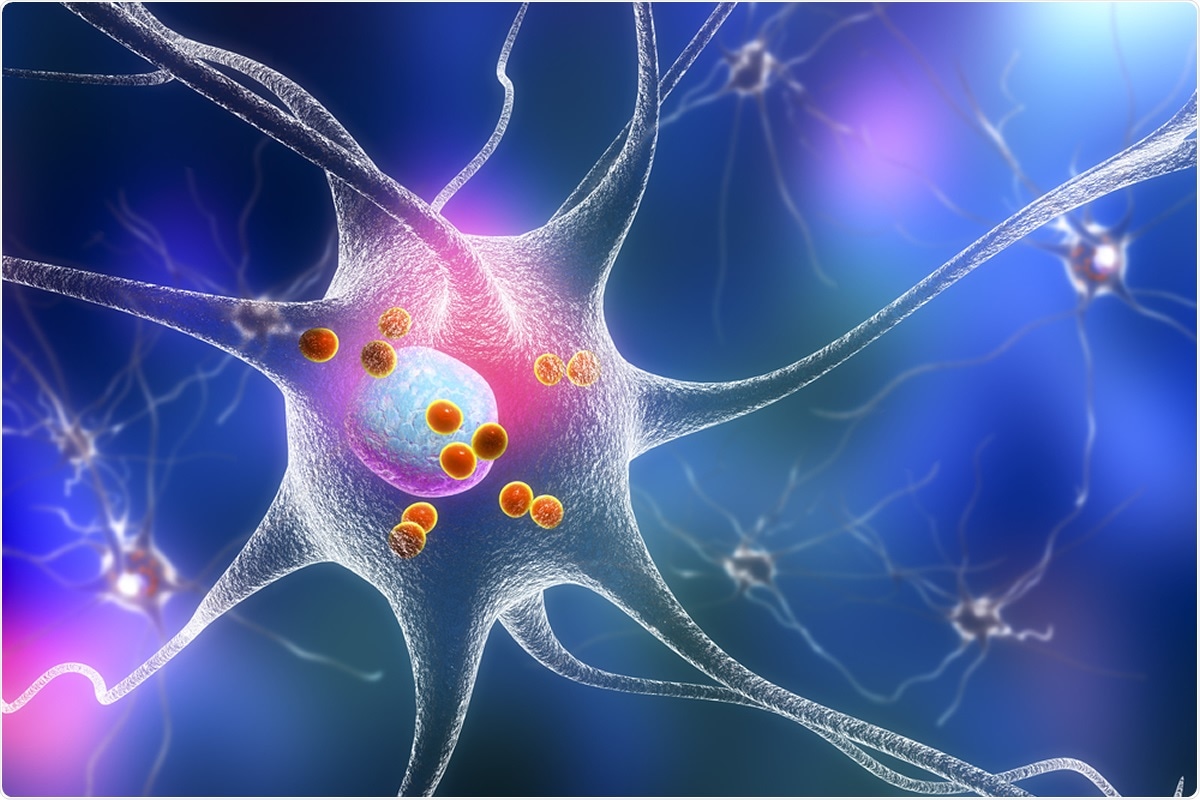The coronavirus disease 2019 (COVID-19) pandemic has caused immense devastation, with well over three million reported deaths, hundreds of millions of infections, and drastic reductions in economic growth worldwide. As a result of the severe acute respiratory syndrome coronavirus 2 (SARS-CoV-2) infection, not only acute symptoms have been noted, but also long-term complications.
Earlier, herpes simplex virus (HSV), influenza virus A, measles virus, cytomegalovirus (CMV), and mumps virus have all been associated with after-effects of the virus that includes Parkinson's disease (PD). This list may now include SARS-CoV-2.
The virus has been found in cerebrospinal fluid, as well as in lung and airway tissue, fecal samples and blood specimens. Apart from the actual pathologic changes found in the tissue, the effects of the unusual and prolonged isolation are also likely to cause depressive and cognitive symptoms.
A recent research paper posted to the medRxiv* server discusses the impact of COVID-19 on Parkinson's disease (PD).

ACE2 receptors and viral entry into the brain
The SARS-CoV-2 virus engages the host cell receptor angiotensin-converting enzyme 2 (ACE2) via its receptor-binding domain (RBD). These receptors are found all over the body's cell surfaces, as well as in the cells of the central nervous system (CNS) – both the neurons and supporting glial cells. This supports the entry of the virus into the brain.
Other than ACE2 receptors, sialic acid residues are postulated to be receptors for the virus.
One reason for PD patients to experience worsening of neurological symptoms could be the drop in routine follow-up, as some practices shut down and other patients were socially isolated.
However, when SARS-CoV-2 enters the neuron, T lymphocytes in the brain become overactive. The resulting inflammation could cause blood vessels to dilate and promote clotting in the brain, as well as reduced oxygen supply to the brain tissue. This could lead to stroke and seizures.
Parkinson's disease
A progressive and chronic neurological disorder, Parkinson's disease (PD) affects movement and gait. In addition, resting tremors and rigidity are observed.
Non-motor symptoms like cognitive impairment, psychoses and neuroses, depression, and apathy, may also be observed in these patients, as may autonomic features such as drops in blood pressure and disturbances of bladder function.
Neurological symptoms found in COVID-19 patients proper included fatigue, confusion, headache, stroke, dizziness, seizures, loss of appetite, and sleep disturbances. In addition, the paralytic condition called Guillain Barre syndrome, as well as alterations of smell and taste sensation, myoclonus, neuropathic pain, and muscle pain, have all been reported in these patients.
ACE2 receptors are present in abundance on dopaminergic neurons, which are already impaired in PD.
The entry of SARS-CoV-2 into dopaminergic neurons may well worsen motor symptoms in PD, but the cytokine storm associated with the hyperactive immune response to the viral infection may cause indirect inflammatory damage to the CNS as well.
Study findings
The current study found that PD patients with a positive test for COVID-19 had worse motor symptoms following the viral infection. These included slowness of movement, or bradykinesia, altered gait, tremors, delirium, and dementia, along with severe spasms in all limbs. A couple of studies also reported the occurrence of encephalopathy and higher mortality rates in the PD-COVID-19 group compared to other COVID-19 patients.
The average age of the PD patients was 77 years, with most being male. Almost all had other medical conditions, including hypertension, diabetes, obesity, abnormal blood lipid levels, cardiovascular disease, chronic obstructive lung disease, chronic kidney and liver disease, and impaired immunity.
What are the conclusions?
The presence of comorbidities in most PD patients, as well as their advanced age, could skew the interpretation of the results of this study since all these conditions do worsen the severity of PD as well as of COVID-19. Moreover, the presence of CNS disease, especially when severe, may affect the outcome of COVID-19 by itself.
The researchers were unable to identify how well the patients adhered to their medication regimens. However, the known neurological effects of COVID-19 are corroborated by these findings, in which patients with Parkinson's disease who acquire this infection developed progressive neurological symptoms.
"Parkinson's disease may experience substantial worsening of motor and non – motor symptoms during COVID 19. Additional studies are needed to understand the role of ACE2 in increasing vulnerability to viruses and role of ACE inhibitors as treatment modality."
*Important Notice
medRxiv publishes preliminary scientific reports that are not peer-reviewed and, therefore, should not be regarded as conclusive, guide clinical practice/health-related behavior, or treated as established information.
- Jaiswal, V. et al. (2021). Influence of novel coronavirus disease (covid-19) on parkinsons disease: systematic review. medRxiv preprint. doi: https://doi.org/10.1101/2021.05.09.21256929. https://www.medrxiv.org/content/10.1101/2021.05.09.21256929v1
Posted in: Medical Research News | Medical Condition News | Disease/Infection News
Tags: ACE Inhibitors, ACE2, Angiotensin, Angiotensin-Converting Enzyme 2, Bladder, Blood, Blood Pressure, Blood Vessels, Bradykinesia, Brain, Cardiovascular Disease, Cell, Central Nervous System, Chronic, Chronic Obstructive Lung Disease, Coronavirus, Coronavirus Disease COVID-19, Cytokine, Cytomegalovirus, Delirium, Dementia, Depression, Diabetes, Dopaminergic, Encephalopathy, Enzyme, Fatigue, Headache, Herpes, Herpes Simplex, Herpes Simplex Virus, Immune Response, Inflammation, Influenza, Kidney, Liver, Liver Disease, Lung Disease, Measles, Mortality, Mumps, Muscle, Myoclonus, Nervous System, Neuron, Neurons, Neuropathic Pain, Obesity, Oxygen, Pain, Pandemic, Parkinson's Disease, Receptor, Research, Respiratory, SARS, SARS-CoV-2, Severe Acute Respiratory, Severe Acute Respiratory Syndrome, Sleep, Stroke, Syndrome, Virus

Written by
Dr. Liji Thomas
Dr. Liji Thomas is an OB-GYN, who graduated from the Government Medical College, University of Calicut, Kerala, in 2001. Liji practiced as a full-time consultant in obstetrics/gynecology in a private hospital for a few years following her graduation. She has counseled hundreds of patients facing issues from pregnancy-related problems and infertility, and has been in charge of over 2,000 deliveries, striving always to achieve a normal delivery rather than operative.
Source: Read Full Article
